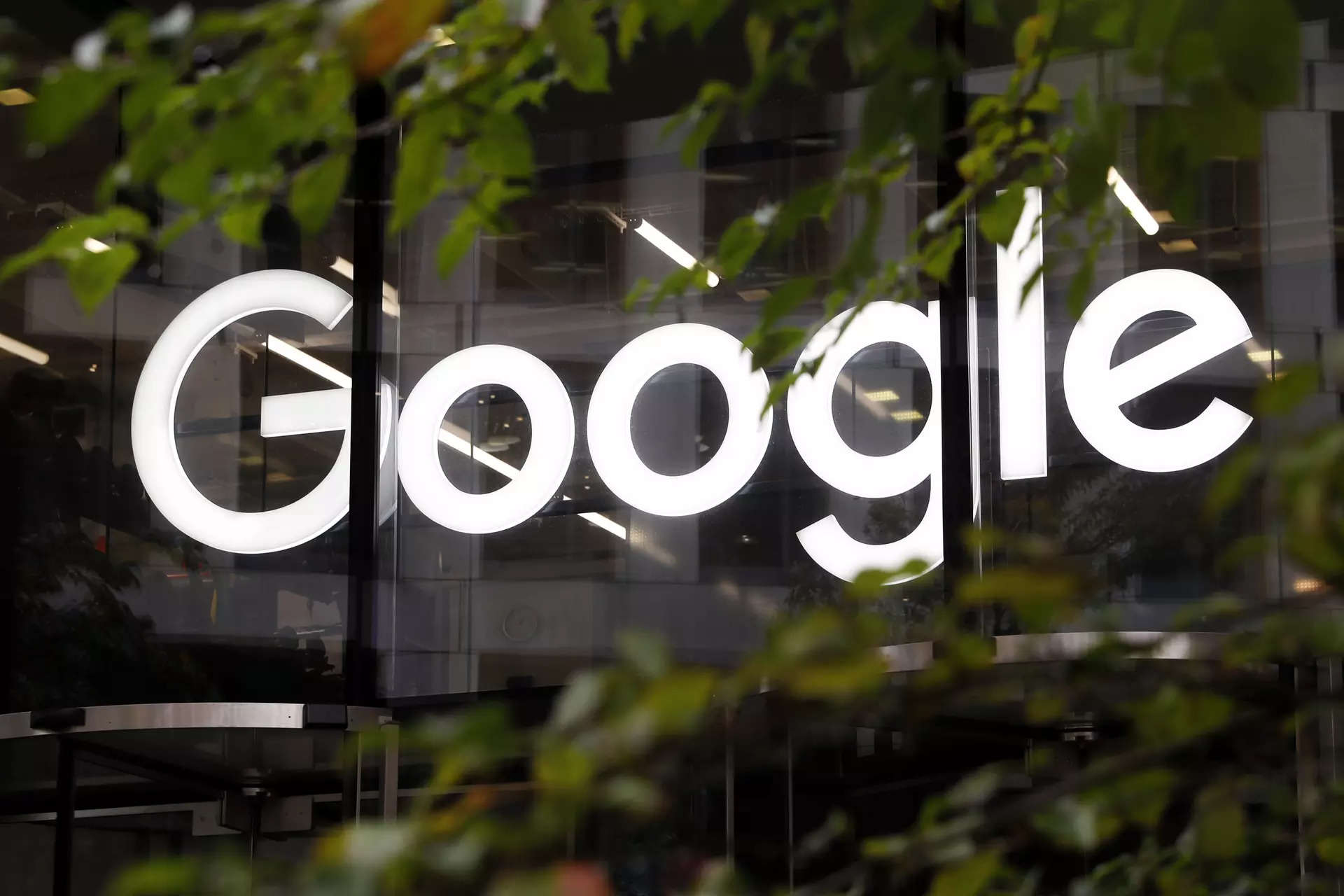[ad_1]
The Alphabet Workers Union accused the internet giant of violating federal labor law, which prohibits retaliation against employees for organizing. More than 70% of the proposed bargaining unit — which includes 118 writers, graphic designers and launch coordinators who create internal and external Google content — were told in July that they will lose their jobs, according to a Thursday filing with the National Labor Relations Board.
The workers, whose jobs have included improving the quality of answers in Google’s search engine and artificial intelligence chatbot, are employed through the vendor Accenture Plc. But the union contends Alphabet is also legally their boss. It has asked the NLRB to designate the internet giant a “joint employer” of the Accenture staff, meaning a company that exercises enough control over a group of workers to be liable for their treatment and, if they choose to unionize, obligated to negotiate with them.
The decision to cut people’s jobs “feels retaliatory,” said Anjail Muhammad, who was told her role as a writer with Accenture will be eliminated. “It’s obvious that this timing is incredibly suspicious, and that is why we are filing an unfair labor practice charge — to hold Google and Accenture accountable for their behavior.”
Accenture didn’t immediately provide a comment. When Accenture announced it was cutting the workers’ jobs in July, a company spokesperson said in a statement that Accenture supports the rights of its people to form or join unions. They added: “As conveyed to our people recently, these workforce decisions were made prior to any notification to us of potential union activity.”
A spokesperson for Google said in July that the company respects the workers’ rights but that organizing was “a matter between them and their employer, Accenture,” and that “Google does not control their employment terms or working conditions.” The company on Thursday said it still stands by that statement, and rejected the idea that changes for the Accenture Google Help contract were for any purpose other than savings and efficiency. Google said it chooses its partners and staffing agencies carefully and reviews their compliance with the company’s Supplier Code of Conduct.
The workers, who are based in Austin, Texas; the San Francisco Bay Area and elsewhere in the US, were told about the cuts during a livestreamed “town hall” that did not allow questions or comments, according to several employees who attended the session, who declined to be identified sharing non-public information. Later, they received a follow-up about “the Content Creation team supporting Google,” according to an email reviewed by Bloomberg. “As discussed during the townhall, the account team has adjusted our support for this project to meet the needs of our client,” it said. The team would be reduced on a rolling basis through November, according to emails from Accenture, with the first round of terminations coming on August 7.
Tahlia Kirk, a writer and team trainer, said that with the layoffs, employees working on the Accenture contract for Google will be reduced to 40 US-based people, from about 130. She said they have been instructed to train their replacements who work in the Philippines and India. But even with the reduced headcount, Kirk said, “I’m confident that we have such strong support that we will win the union election, no matter what.”
The dispute is the latest controversy over what Alphabet owes its vast army of contract staff, who in 2018 became the majority of its global workforce. Another group of Alphabet contract staff, employed by Cognizant Technology Solutions Corp. to work on YouTube Music in Texas, voted 41-to-0 to unionize in April. On July 19, NLRB members in Washington DC upheld a regional director’s ruling that Alphabet was a joint employer of those workers, meaning the company is required to collectively bargain with them, a first in its history. But Alphabet has signaled it will still refuse to negotiate with the workers, who it contends are not its employees, meaning the issue is likely to end up in federal appeals court. “We’ll continue to assert our position that we’re not a joint employer,” spokesperson Courtenay Mencini said last month.
In interviews, workers disputed the idea that Google had little control over their jobs. Laura Greene, a multimedia team leader, said she spent her time at work coordinating with full-time Google employees on content strategy, and that she had created internal white papers and infographics for people who report directly to Alphabet’s chief executive officer.
“Most of my work week, I am talking to Googlers, working with Googlers,” Greene said. “I’ve worked with them a lot more closely than I do Accenture managers. I have a Google email, I use their proprietary systems and equipment. And if I have a problem with my equipment, I call Google tech support.” Google said it was not abnormal for some contract staffers to work with Googlers or communicate on Google systems to perform their assignments.
Complaints filed with the NLRB are investigated by regional officials, whose task in the Google Help case would include determining whether Alphabet is in fact a joint employer. If a regional director finds merit in the union’s claims and can’t secure a settlement, they would prosecute the case before an agency judge, whose ruling could be appealed to the NLRB members in DC and from there into federal appeals court.
Kirk, the team trainer, said Google and Accenture’s decision to cut the majority of jobs on the team would cause “irrevocable damage” to the quality of the content work, given the loss of institutional knowledge and the substitution of US employees for overseas workers who will need to be rushed through training.
“I think a lot of people are going to say about the layoffs, ‘Well, what do you expect from a big tech company?’” Kirk added. “But people constantly forget that unionizing is a federally protected right. If these companies are trying to lay us off to prevent us from voting in our union election — and that is what appears to be happening — they are breaking the law.”
[ad_2]
Source link











More Stories
Google Maps: Three privacy features coming to Google Maps on Android, iPhones
Most-Downloaded IPhone App: This Chinese app was the most-downloaded iPhone app in the US in 2023
Ukraine’s largest mobile operator goes offline for millions of users after cyber attack